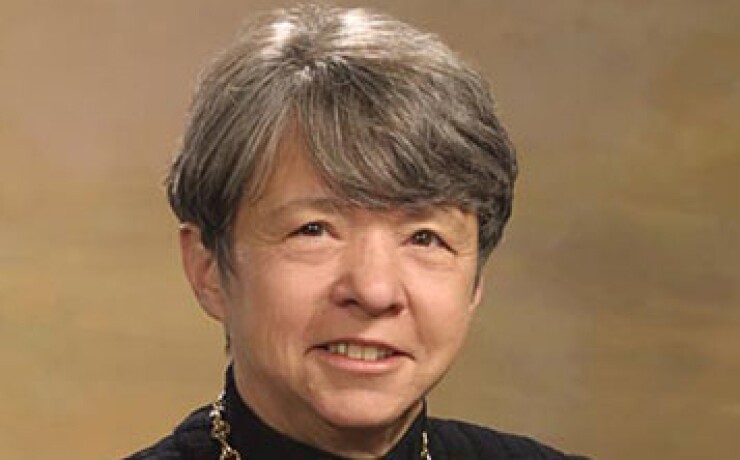
WASHINGTON – The Securities and Exchange Commission's top cop Andrew Ceresney plans to leave the SEC by the end of the year after helping to bring several ground-breaking municipal bond and other enforcement cases.
Stephanie Avakian will become acting director of the enforcement division after he leaves. She joined the SEC in June 2014 and has been serving as deputy director of the division.
During Ceresney's tenure, which dates back to April 2013 when he was named co-head of the enforcement division with George Cannellos, the SEC has filed more than 2,850 enforcement actions and obtained judgments and orders totaling more than $13.8 billion in monetary sanctions.
"Under Andrew's strong leadership, the enforcement division took its already robust enforcement program to an even higher level, achieving unprecedented results, including a record number of enforcement actions, first-of-their-kind cases and a first ever admissions policy for a civil law enforcement agency," said SEC Chair Mary Jo White. "Andrew's tremendous work ethic, commitment to do what is right, and deep dedication to his entire team have made him an incredibly effective leader."
The enforcement actions under his leadership covered every priority area, including public finance.
The division broke new ground by filing charges against 72 municipal underwriting firms that comprised 96% of the market share for muni underwritings, and 71 issuers under its Municipalities Continuing Disclosure Cooperation (MCDC) initiative.
The MCDC initiative promised underwriters and issuers that they would receive lenient settlement terms if they self-reported instances over the last five years where issuers falsely stated in offering documents that they were in compliance with their continuing disclosure agreements.
White recently told members of Congress that the program might mean the SEC needs legislative authority over issuers. The program led Rep. Gwen Moore, D-Wis., to introduce a bill that would shift municipal disclosure responsibilities to issuers and borrowers from underwriters.
Ceresney also oversaw the first SEC case to hit a municipal issuer with a civil penalty. In the case, the Greater Wenatchee, Wash., Regional Events Center Public Facilities District agreed to pay $20,000 in November 2013 over charges that its disclosure documents related to the development of a multi-use arena and ice hockey rink were false and misleading.
The commission also broke new ground by pursuing individuals under a section of the Securities Exchange Act of 1934 that allows the SEC to hold public officials responsible for violations based on their control of the municipal entity that engaged in the fraud. The enforcement division used the section's control person liability in two 2014 actions, one against the former mayor of Allen Park, Mich. and the other against the former mayor of Harvey, Ill.
The action involving the mayor of Allen Park related to $31 million of munis the city sold in 2009 and 2010 to finance a movie studio project. The SEC found that the offering documents contained false and misleading statements about the scope and the viability of the project as well as Allen Park's overall financial condition and its ability to pay debt service. The case against Harvey involved three muni offerings in 2008, 2009, and 2010 totaling roughly $14 million to construct a hotel in the city. The SEC found that city officials diverted bond proceeds away from the project to pay both themselves and general operation costs.
The Harvey case was also the first time the SEC received emergency relief in federal court to halt a bond offering until certain safeguards could be put in place. The commission took that action after learning that Harvey was planning a new bond offering while the SEC investigation was moving forward.
In addition, the SEC won its first ever federal jury trial involving municipal securities when a jury found in the city of Miami and its former budget director Michael Boudreaux guilty of securities fraud. Miami has since agreed to settle for $1 million and Boudreaux has been ordered to pay $15,000.
The SEC also worked with the Department of Justice on the DOJ's first-of-a-kind criminal case against two Ramapo, N.Y. city officials. The litigation is ongoing against the two officials. The SEC's parallel case charged Ramapo, its local development corporation, and four town officials with securities fraud for misleading investors in connection with bonds.
Prior to joining the SEC, Ceresney was a litigation partner at Debevoise & Plimpton LLP and was co-chair of its white collar group. Prior to that, he was deputy chief appellate attorney in the United States Attorney's Office for the Southern District of New York, where he also was a member of the securities and commodities fraud task force and the major crimes unit.
Ceresney was a law clerk to the Honorable Dennis Jacobs, formerly chief Judge of the U.S. Court of Appeals for the Second Circuit. He also clerked for the Honorable Michael B. Mukasey, formerly chief judge of the U.S. District Court for the Southern District of New York. He is a graduate of Columbia College and Yale Law School.
Avakian joined the SEC in June 2014 from the law firm of Wilmer Cutler Pickering Hale and Dorr, where she was a partner in the firm's New York office and a vice chair of its securities practice.
She previously worked in the SEC enforcement division as a branch chief in the New York Regional Office, and later served as a counsel to SEC Commissioner Paul Carey. She obtained her bachelor's degree magna cum laude from the College of New Jersey, and her law degree magna cum laude from Temple University's Beasley School of Law.





